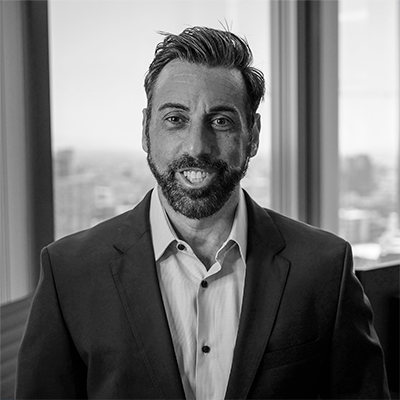The American Dream. What happened to it? The greatest nation in the history of the world is losing the dream as the wealth gap widens every day and economic inequality soars. Are we still the land of the free and home of the brave for everyone, or only a select wealthy few?
As the U.S. wealth divide keeps growing, opportunities are vanishing across a range of industries and institutions. In addition to wealth inequality, we are also currently living through a pandemic that has devastated our people and our economy. Both our physical and financial wellbeing are in jeopardy, and those underserved groups that already suffer from systemic disenfranchisement are once again disproportionately bearing the brunt of the economic fallout. The dual issues of economic and health inequality have a profound impact on a person’s ability — and society as a whole — to address and tackle all of the societal challenges that have now been exacerbated by the coronavirus pandemic.
People are now, more than ever, concerned about their futures. And there is a significant amount of research that shows that inequality is a blight across the globe. The United Nations Human Development Report 2019 reveals that global inequality is now an issue of disparities in opportunity rather than just income disparities. Pedro Conceição of the United Nations Development Program (UNDP) frames it this way:
“Inequalities in human development remain high and widespread. If we look at what happened to a child born in the year 2000 in a low human development country compared to a child born in a very high human development country, there’s a 17% probability that the child [from the low development country] is not alive today, 20 years after she was born, while in a very high human development country, there’s only a 1% chance that the child is not alive today.” [1]
This stark example illustrates how life-and-death the consequences of inequality are to those with the least amount of power to change the system. And yet, hope remains for a better future. Companies focus more and more on ESG (environmental, social, and governance) factors when making business decisions. The idea that money can drive profits and spur positive social impact is rapidly gaining traction in the financial services industry and beyond. ESG investing and the emergence of Certified B Corporations indicate that many businesses now see themselves as not just part of the economic engine in the U.S., but also as organizations that can harness their resources and power to create social impact. And the data shows that ESG investing is good business: “the value of global assets applying environmental, social and governance data to drive investment decisions has almost doubled over four years, and more than tripled over eight years, to $40.5 trillion in 2020,” according to a report from Pensions & Investments [2].
This mission-driven entrepreneurship is what propelled my FinTech company into existence. I grew up working-class and surrounded by wealthy, well-educated, and well-connected people. I knew from an early age that the game was rigged, and I was determined to find a way to help everyone access the financial tools and resources needed to pursue their version of the American Dream. I spent years working with high-net-worth individuals (HNWI) in the real estate sector, and it was clear to me that the only way for the majority of Americans to build generational wealth and attain financial freedom was to democratize the access to wealth-building tools that were only available to 1% of the U.S. population. I knew I could create a pathway for the 99% to learn the strategies and methods employed by HNWI and make real progress in closing the wealth gap. I was determined to break the cycle of only the rich getting richer.
In May 2015, an amendment was made to the Jumpstart Our Business Startups (JOBS) Act that allowed companies like ours to open up investments to everyone. This was a huge step in allowing everyone to invest online. This was the opening I had been searching for. I partnered with Alan Lewis (now our CIO) to formally start DiversyFund. Alan’s background as a corporate lawyer and investment banker on Wall Street helped shape the framework of our shared mission of democratizing investing for everyone. However, as important as the tech and opening up access to investing in alternative assets to more Americans is, I am a big believer that education paired with investment access will be the way forward in tackling the wealth gap and helping solve so many issues that economic inequality either causes or exacerbates.
Innovation has always been an American trait, and some companies are making a positive impact while also turning a profit. As we begin to shift from the old ways and institutions and lean into a fully digital world, more and more companies can democratize wealth building by leveraging the power of tech. The 99% are finally getting a chance at moving the needle forward in terms of economic progress and access. Companies that focus on serving people from all walks of life are beginning to take center stage and have measurable social impact. People are taking note and placing a value on these companies, as the booming ESG sector illustrates. Wealth accumulation has become a digital endeavor. Now it’s up to these corporate leaders to share the wealth. Capitalism produces more efficiencies, which yield more productivity, which increases wealth, and this wealth usually remains in the hands of a few. Now it’s time to share economic opportunities with everyone.
[1] Sustainabledevelopment.org




































